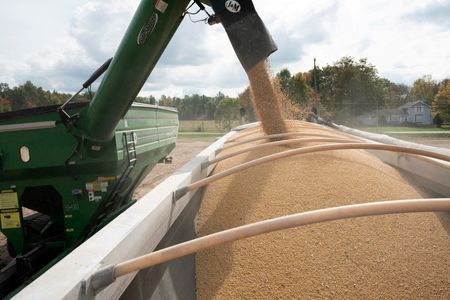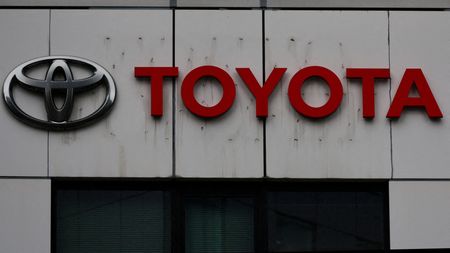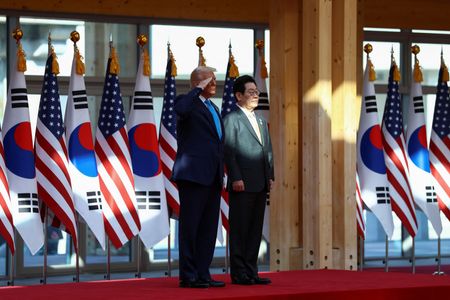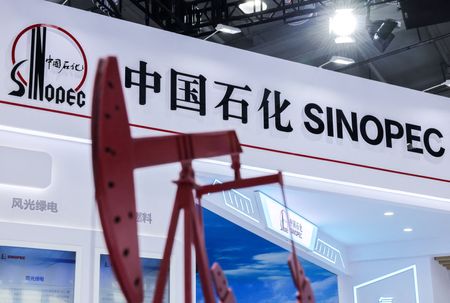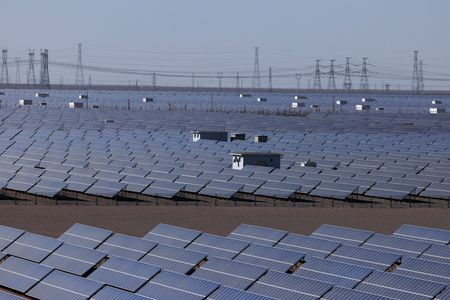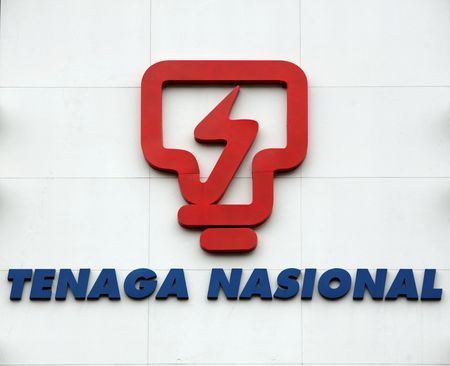By Ella Cao and Naveen Thukral
BEIJING/SINGAPORE (Reuters) -China’s state-owned COFCO bought three U.S. soybean cargoes, two trade sources said, the country’s first purchases from this year’s U.S. harvest, shortly before a summit of leaders Donald Trump and Xi Jinping.
As the two nations battle over trade tariffs, the lack of Chinese buying has cost U.S. farmers billions of dollars in lost sales, after they largely supported Trump in his campaigns for president.
Although COFCO’s deal for December-January shipment of about 180,000 metric tons of soybeans was China’s first such buy in months, traders do not expect a significant resumption in demand for U.S. cargoes after recent large South American purchases.
COFCO did not immediately respond to a Reuters request for comment.
“COFCO has proceeded to purchase U.S. beans even before the two leaders have reached a trade agreement,” said a trader at an international trading company that supplies Chinese crushers.
“The volumes booked by COFCO are not that large, three cargoes for now.”
Benchmark Chicago soybean futures prices jumped this week to their highest in 15 months, rebounding from recent five-year lows on hopes for a U.S.-China trade deal. Futures were mostly lower near the close on Wednesday as China’s purchases were seen as minimal and traders awaited further news from the Trump-Xi meeting.
The lack of Chinese demand this season has hurt U.S. farmers financially as they have nearly finished harvesting a large crop while their top export market has remained absent. They are also grappling with steep costs for fertilizer, seeds, labour and equipment.
Illinois Governor J.B. Pritzker on Wednesday signed an executive order declaring an agricultural trade crisis in the nation’s top soybean-producing and exporting state, citing soybean production losses of $100 to $200 per acre. The order directed state agencies to take immediate action to expand domestic markets and invest in mental health support for farm families.
The prime U.S. soybean export season normally runs from October through January, but China has shunned soybeans from the autumn U.S. harvest this year, amid protracted trade friction with Washington, turning instead to South American suppliers.
Reuters was the first to report China’s purchase of three cargoes.
LACKLUSTRE DEMAND
China, which takes more than 60% of world soybean imports, has nearly completed booking cargoes from Brazil and Argentina through November, with limited purchases expected for December and January ahead of the Brazilian harvest.
“U.S. suppliers have missed out on most of the oilseed crushing business,” said a second oilseed trader, who expected China to need about 5 million tons of shipments in December and January, for which market conditions favour Brazil.
U.S. soybeans, which traded at a steep discount to Brazilian cargoes in recent weeks due to subdued Chinese demand, have strengthened this week and are now priced at parity at about $2.45 per bushel above Chicago futures, traders said.
Private Chinese buyers tend to prefer Brazilian soybeans for their higher protein content, which typically brings a premium over U.S. soybeans, said Jeffrey Xu, general manager of Shanghai-based OCI, a soybean consultant and two other traders.
Still, China could take about 8 million tons of U.S. soybeans for its strategic reserves in the period from December to May, traders said, buying through state-owned enterprises such as Sinograin, which would be worth roughly $4 billion.
(Reporting by Ella Cao and Naveen Thukral; Additional reporting by Karl Plume in Chicago; Editing by Tony Munroe, Clarence Fernandez and Deepa Babington)

